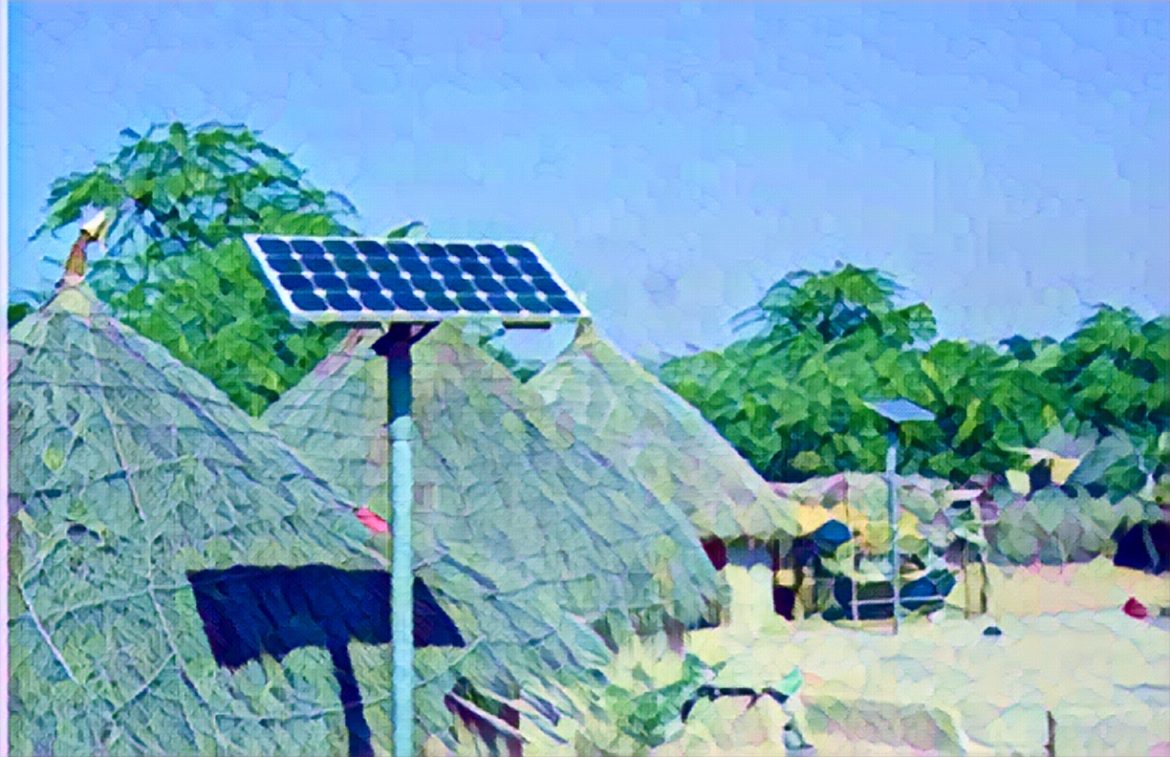KEY POINTS
- Solar power fuels economic growth in Nigeria’s underserved regions.
- Solar mini-grids bring healthcare and education improvements to rural Nigeria.
- Government partnerships advance solar electrification for millions in Nigeria.
Dependable access to energy is essential for economic development, healthcare, education, and overall quality of life. According to the International Energy Agency (IEA), over 80 million individuals in Nigeria, predominantly in rural regions, continue to lack access to electricity.
Solar energy has risen as a sustainable and accessible solution for rural electrification in Nigeria, providing a possible alternative to expensive and logistically challenging grid extensions in remote areas.
Rural Electrification and Solar Energy for Nigeria
Electrifying rural regions in Nigeria is transformative, facilitating economic and social advantages that can expedite development. According to research from the World Bank, each dollar invested in rural electrification can yield up to $15 in economic returns. Dependable energy connection enhances local enterprises and facilitates mechanized agriculture, fostering job development and augmenting output.
Access to electricity enables rural healthcare facilities to refrigerate vaccines and operate essential medical equipment, which is vital in remote regions with inadequate health infrastructure. Electrification enhances educational outcomes as well. The UN Sustainable Energy for All program indicates that children in electrified households are 30% more likely to complete primary education, underscoring the significance of accessible energy for education.
Solar energy is particularly advantageous for Nigeria’s rural regions due to the nation’s ample sunlight and the scalability of the technology. Solar installations vary from modest solar home systems (SHS) for individual residences to mini-grids serving entire communities. The International Renewable Energy Agency (IRENA) has recognized mini-grids as economically viable solutions for communities distant from centralized power infrastructure.
Due to technological advancements, the costs of solar installations have significantly decreased, with solar PV prices declining by over 80% and battery prices by nearly 70% since 2010. In Nigeria, pay-as-you-go (PAYG) models provided by companies such as Lumos and Arnergy enable low-income households to access solar power, thereby enhancing energy accessibility for millions (IRENA).
Obstacles and Practical Implications of Solar Electrification
Notwithstanding its potential, solar electricity in rural Nigeria encounters numerous hurdles. Significant initial expenses and the requirement for regular maintenance, particularly battery changes, can be onerous; however, financing options such as microloans and government subsidies are alleviating these challenges.
Through the Nigeria Electrification Project (NEP), which the Rural Electrification Agency is facilitating, the Nigerian government has offered incentives in collaboration with the World Bank to fund off-grid solar solutions for rural electrification.
Empirical evidence illustrates the transforming effects of solar energy inside Nigerian communities. Lumos has installed hundreds of SHS units, enabling rural homes to use basic appliances, lighting, and mobile phones, immediately enhancing quality of life.
In Kaduna State, community solar mini-grids have facilitated the prosperity of local enterprises and agricultural activities, enhancing earnings and generating employment opportunities. The Nigeria Electrification Project has connected more than 500,000 individuals to solar solutions, providing sustainable energy in areas where conventional grid infrastructure would be excessively costly.
Policy and International Collaborations: The Future Direction for Nigeria
Enhancing solar energy in rural Nigeria necessitates sustained policy backing and global collaborations. The Nigerian government is instrumental in fostering solar investment through the provision of subsidies and the establishment of regulatory frameworks.
Programs like the Nigeria Electrification Project and the World Bank’s Energy Sector Management Assistance Program (ESMAP) are important, providing finance and support for off-grid solar installations across the country. International financing approaches, such as carbon credits and Renewable Energy Certificates (RECs), are also being used to finance solar projects, aligning with the UN’s Sustainable Development Goal 7 for affordable, clean energy access (World Bank).
Conclusion: Realizing Solar’s Potential in Nigeria’s Rural Electrification
Solar energy is altering rural electrification in Nigeria, offering essential economic, educational, and health benefits. By emphasizing governmental assistance, global cooperation, and inventive funding strategies, Nigeria can sustainably enhance solar accessibility for marginalized rural populations.
With sustained dedication, solar energy may address Nigeria’s rural electrification deficit, promoting equitable development and furthering the nation’s sustainable development objectives.


